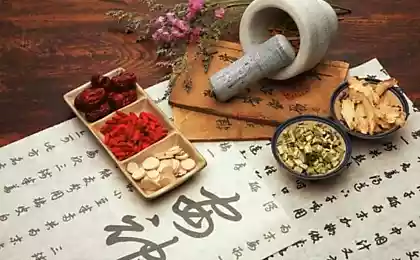482
The inedible according to foreigners products in China, which I personally love

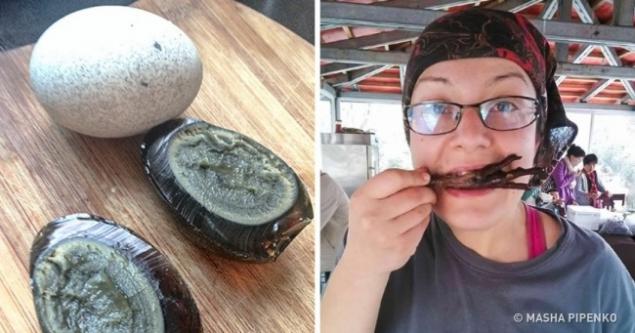
Most of the "delicacies" of Chinese cuisine, which are described in the Western media and shocked the audience, are a rarity, and for the Chinese themselves. So, for example, one of my many friends did not eat Tossidin — eggs soaked in the urine of boys virgins, and have not tried the meat dogs. However, once I saw people eating insects on a stick. But it was the Russian tourists who had met the surprised looks not otmazyvatsya such the heroism of the Chinese.
However, in the daily menu of the Chinese people is very unusual from the point of view of Europeans products. If you had the determination to figure out what the taste and appearance of the Chinese "delicacies", feel free to go to the restaurant. Almost any of them you will be able to surprise. So, what is it?
- Start with a not very exotic, but very unusual taste of the soup of rice wine. Rice wine is often added as an ingredient in Chinese dishes and almost all Asian dishes. It is sweet and contains a small amount of alcohol (less than 4°). The taste of the soup special: a mixture of sweet, sour and something else incomprehensible. At first taste it is puzzling: "Why do the Chinese eat it so that cracks behind the ears?" But after some time, imbued with the taste and lustfully looked at the gurgling pot with cooking soup.
- Perhaps the most exotic in terms of appearance can be considered a tribute to PI — "century egg". Eggs ferment in lime (the ferment time from 15-20 days to a few months). Protein boiled eggs becomes a transparent brown color, and the yolk becomes black. Many foreigners believe the "century egg" the most disgusting Chinese food, perhaps due to a slight smell of ammonia. But I personally pee a tribute to love, especially mixed with a light tofu, soy sauce, sesame oil and garlic.
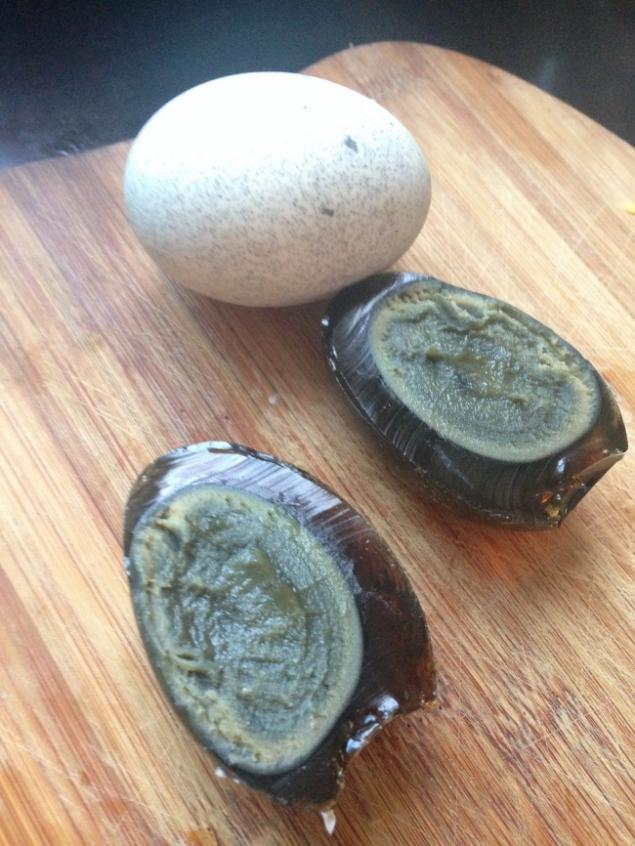
- Speaking of strange "liquids", not to mention tea... buckwheat. Green, not roasted buckwheat pour boiling water and infused. Tastes like weak broth, buckwheat. Very personal, especially if you're hungry, you can always eat "welding".
- A more extreme version of the Chinese diet — thickened pork or duck blood. Looks like layers of regular tofu, only dark red color, even more brown. According to the structure resembles beef liver. Sliced blood reservoirs — a common ingredient for hot pot. Hot pot — a pot of broth where you cook everything your heart desires and then eat it with the sauce. Another common recipe of the blood, sauteed in a spicy sauce of hot peppers with sprouts bean sprouts. In my opinion, nothing special, but the Chinese say that this dish is especially useful for women due to the large amount of iron.
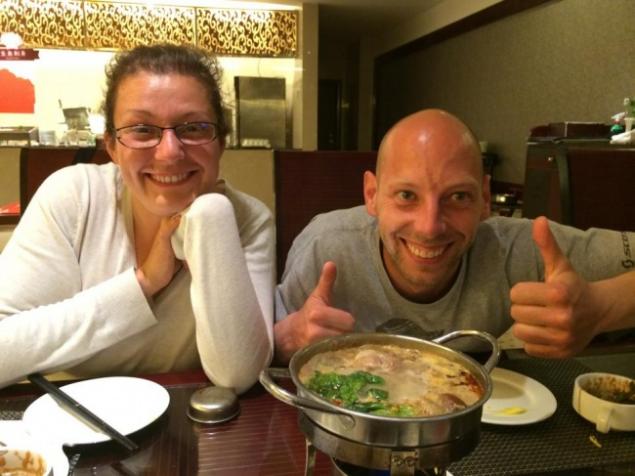
- If pig's blood looks quite usual for foreigners, and violent emotions arise only when they know what it is, that at the sight of chicken feet many can not refrain from disgust faces.Chicken feet with claws, a favorite delicacy in China. They smoked, boiled, stewed, and fried, in General, unlike us, it is not diskriminerad on anatomical grounds. Chicken — chicken it is. Smoked chicken feet is a favorite beer snack along with even more exotic to us smoked duck heads. To the heads here at all, I must say, a special relationship. Especially to fish. Fish head is a delicacy, and often fish heads, in particular soup with them, are much more expensive than the fish itself.
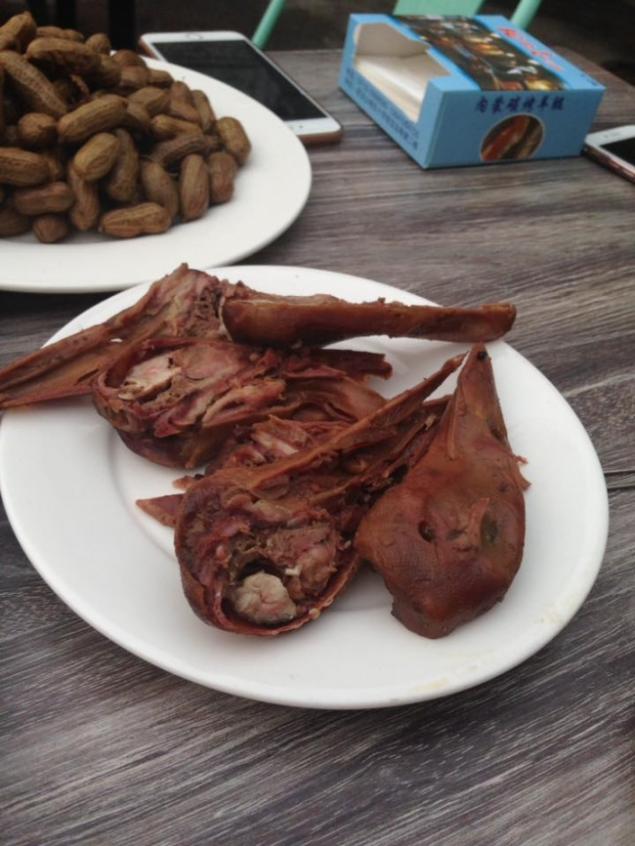
- The only dish that I'm absolutely not inspired, is rotten tofu — Chow dofu. That's what he's called in Chinese, and believe me, rotten he called not in vain. To say he stinks — to say nothing. A strong smell you feel long before you see a stall with this "delicacy." Moreover, depending on the province the intensity of the smell varies. The stinky tofu I was found in Shaoxing, which is located in the province of Jentzen. Try it I dare only after two and a half years of living in China and, to put it mildly, not impressed. But I personally know people who love stinky tofu is not less gently than many Europeans smelly French cheese.
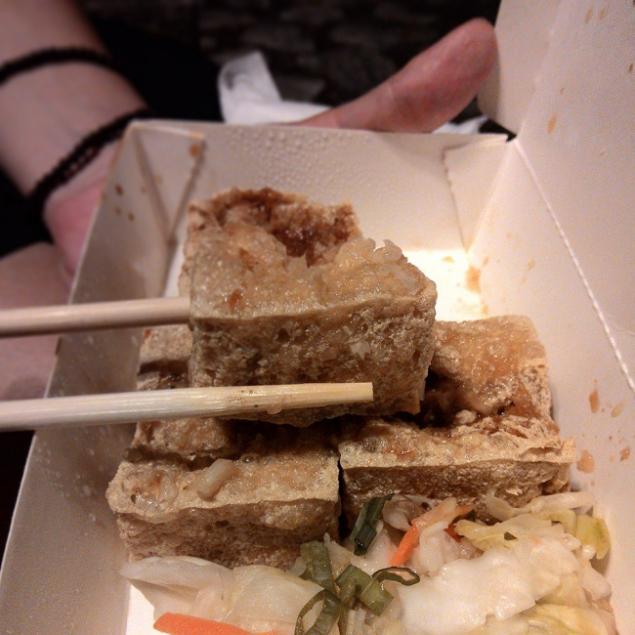
When you long to live in a country with a different culture, suddenly it turns out that the taste — thing plastic. And the food that you previously viewed with suspicion, becoming an integral part of your diet and a favorite treat. It is important not to resist new experiences, take risks and try new things.
Photos on the preview Masha Pipenko
Author Masha Pipenko
See also
10 things about the Chinese school that I learned, having worked as a teacher in China
15 things I learned after living two years in China
via www.adme.ru/svoboda-kultura/s-kitaem-u-menya-sluchilas-lyubov-s-pervogo-vzglyada-1277765/
15 hairstyles that can be worn with caps and hats
10 pairs of sports that will help you to not only get in shape, but also to get closer














